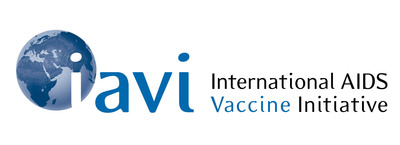NEW YORK, June 18, 2015 /PRNewswire-USNewswire/ -- New research led by scientists at The Scripps Research Institute (TSRI), International AIDS Vaccine Initiative (IAVI) and The Rockefeller University shows that an experimental vaccine candidate can stimulate the immune system to block HIV infection in mice.

The new candidate has the potential to inform immunization strategies against AIDS for humans. The effort to develop a vaccine against HIV has so far struggled to elicit antibodies that can effectively fight off different strains of the fast and extensively mutating virus. The new results were published June 18 in concurrent studies in Cell and Science.
"The results are pretty spectacular," said Dennis Burton, chair of the TSRI Department of Immunology and Microbial Science and scientific director of the IAVI Neutralizing Antibody Consortium (NAC) and National Institutes of Health Center for HIV/AIDS Vaccine Immunology and Immunogen Discovery at TSRI.
The Science study was co-led by Burton; William Schief, TSRI Professor and IAVI NAC Director, Vaccine Design; and TSRI Professor David Nemazee. The Cell study was co-led by Schief and Michel Nussenzweig of The Rockefeller University.
The researchers' long-term goal is to design a vaccine that prompts the body to produce antibodies that bind to HIV and prevent infection by many if not all of the virus' variants. HIV mutates more rapidly into new strains than most other viruses and has an unprecedented ability to evade detection by the immune system. The researchers believe that a successful AIDS vaccine will need to consist of a series of related, but slightly different virus proteins (immunogens) to train the body to produce broadly neutralizing antibodies against HIV a twist on traditional vaccination schemes, in which a person is exposed to the same immunogen multiple times.
In the new studies, the scientists tested an immunogen called eOD-GT8 60mer, a protein nanoparticle designed to mimic a critical part of the HIV envelope protein and to bind and activate B cells to produce antibodies needed to fight HIV. The eOD-GT8 60mer was developed in the Schief lab and tested in mouse models engineered by the Nemazee lab to produce human-like antibodies.
The researchers showed that immunization with eOD-GT8 60mer produced antibody "precursors" with some of the traits necessary to recognize and block HIV infection, suggesting that eOD-GT8 60mer could be a good first step in a series of immunizations against HIV.
"The vaccine appears to work well in our mouse model to 'prime' the antibody response," said Nemazee.
In the Cell paper, researchers used the same eOD-GT8 60mer immunogen but a slightly different mouse model.
"The immunogen proved capable of launching the mouse immune systems in the right direction. We look forward to the prospect of testing this exciting strategy in humans," said Schief. The researchers are now investigating other immunogens that could work in conjunction with eOD-GT8 60mer.
A concurrent study also in Science, which included researchers from Amsterdam University, Weill Cornell Medical College, TSRI and IAVI, showed engineered immunogens also triggered broadly neutralizing antibody immune responses in rabbit and monkey models.
"Priming a broadly neutralizing antibody response to HIV-1 using a germline-targeting immunogen (http://www.sciencemag.org/content/early/2015/06/17/science.aac5894.abstract)," Dennis R. Burton, William R. Schief, David Nemazee, et al. Science
"Immunization for HIV-1 Broadly Neutralizing Antibodies in Human Ig Knock-In Mice (http://www.cell.com/cell/abstract/S0092-8674(15)00686-8)," William R. Schief, Michel C. Nussenzweig, et al. Cell
"HIV-1 Neutralizing Antibodies Induced by Native-like Envelope Trimers (http://www.sciencemag.org/content/early/2015/06/17/science.aac4223.abstract?sid=ebaab408-4de5-45c0-ab53-6794ea303535)" Rogier W. Sanders, John P. Moore, et al. Science
About IAVI
The International AIDS Vaccine Initiative (IAVI) is a global not-for-profit organization whose mission is to ensure the development of safe, effective, accessible, preventive HIV vaccines for use throughout the world. Founded in 1996, IAVI works with partners in 25 countries to research, design and develop AIDS vaccine candidates. The organization also conducts policy analysis and serves as an advocate for the AIDS vaccine field. It supports a comprehensive approach to addressing HIV and AIDS that balances the expansion and strengthening of existing HIV prevention and treatment programs with targeted investments in the design and development of new tools to prevent HIV. IAVI is dedicated to ensuring that a future AIDS vaccine will be available and accessible to all who need it.
IAVI's work is made possible by generous support from many donors including: the Bill & Melinda Gates Foundation; the Ministry of Foreign Affairs of Denmark; Irish Aid; the Ministry of Finance of Japan in partnership with The World Bank; the Ministry of Foreign Affairs of the Netherlands; the Norwegian Agency for Development Cooperation (NORAD); the United Kingdom Department for International Development (DFID), and the United States Agency for International Development (USAID). The full list of IAVI donors is available at www.iavi.org.
About The Scripps Research Institute
The Scripps Research Institute (TSRI) is one of the world's largest independent, not-for-profit organizations focusing on research in the biomedical sciences. TSRI is internationally recognized for its contributions to science and health, including its role in laying the foundation for new treatments for cancer, rheumatoid arthritis, hemophilia, and other diseases. An institution that evolved from the Scripps Metabolic Clinic founded by philanthropist Ellen Browning Scripps in 1924, the institute now employs about 2,700 people on its campuses in La Jolla, CA, and Jupiter, FL, where its renowned scientistsincluding two Nobel laureateswork toward their next discoveries. The institute's graduate program, which awards PhD degrees in biology and chemistry, ranks among the top ten of its kind in the nation. For more information, see www.scripps.edu.
IAVI (www.iavi.org): Barbara Rosen, brosen@iavi.org, +1.212.847.1056/+1.646.206.9331
Logo - http://photos.prnewswire.com/prnh/20131210/DC30761LOGO
To view the original version on PR Newswire, visit:http://www.prnewswire.com/news-releases/aids-vaccine-candidate-successfully-primes-immune-system-in-animal-models-300101533.html
SOURCE International AIDS Vaccine Initiative
 Help employers find you! Check out all the jobs and post your resume.
Help employers find you! Check out all the jobs and post your resume.




